Globalization is primarily about the steady growth of economic liberalization around the world, and the drift to a market society in which privatization and commercialization of social policies have followed the process in economic sectors. One of the apparent consequences is a remarkable growth of various forms of economic inequality and insecurity. This book considers a wide range of economic explanations for the increasing wage gap in a globalizing India in a way that will fascinate scholars for years to come. The focus of the book is on how workers and small enterprises in India fare when faced with the processes of globalization and liberalization. While most discussions on globalization stop with the impact of the opening-up of the economy on large enterprises and workers in them, here the authors try to tell the story of what happens to workers and enterprises at the bottom of the pyramid. Among the key questions raised in this study about the experience of Indian development since the onset of economic reforms in 1991, three are especially worthy of reflection. First, the difficulty of a dualistic notion and the limitation of the notion of informal sector: while there has been a growth in labour informalization and production in small-scale units, much of the informal labour is in or around large-scale producers. As a result, India has actually created a highly flexible labour system. Second, the issue of outsourcing of jobs which has excited comment around the world: while there is an international re-division of labour taking place, the general equilibrium dynamics of this process defy easy description. Third, the limitations in the conventional analysis of the links between educational skills and economic performance: while the commercialization of education is a matter of serious concern, it is not necessarily correct to presume that formal schooling is an adequate proxy for the possession of skills in workers.
Flexibility of Labour in Globalizing India: The Challenge of Skills and Technology
$30.60
$34.00
In stock
Free & Quick Delivery Worldwide
All orders amounting to US$ 50 or more qualify for Free Delivery Worldwide. For orders less than US$ 50, we offer Standard Delivery at $14 per book.
ABOUT THE AUTHOR Jeemol Unni
Jeemol Unni is a Professor of Economics at the Gujarat Institute of Development Research, Ahmedabad. She holds a Ph.D. in Economics and an M.Phil. in Applied Economics. She was a post-doctoral Fellow at the Economic Growth Center, Department of Economics, Yale University, USA, during 1991 to 1993.She has carried out extensive research on issues concerning rural and urban labour markets in developing countries. Her special focus in this area is on the informalisation of labour and production systems and the gender implications of this process. In addition, her research addresses issues of social protection to informal workers including both social and economic securities. She has also worked in the area of education addressing issues of differential returns to education across gender, economic activity, wage and self-employment, and ethnic groups.She actively collaborates with national and international NGOs in addressing issues related to workers in the informal sector, particularly women. She is an active member in the Statistics and Social Protection Groups, of Women in Informal Employment and Globalising and Organising, (WIEGO), an international coalition of academics, activists, trade unions and NGOs. She has worked as a consultant to the World Bank, International Labour Organisation, UNESCAP, to donor agencies such as the International Development Research Center, Canada and to the NABARD and SIDBI, specialized banks in India. She was a Senior Research Fellow (1993) and later a Guest Lecturer (2005) at the Institute of Social Studies, The Hague, Netherlands. She was also a Ford Fellow at the International Center for Research on Women, Washington DC (2002). She is a member of the Editorial Board of the Indian Journal of Labour Economics, Journal of the Indian Society of Labour Economics, New Delhi. She has been a member of many national and international committees discussing issues related to the informal sector. She has published four books and 45 articles in national and international journals and edited volumes. She is currently with the National Commission for Enterprises in the Unorganised Sector, New Delhi as a special invitee and International Labour Organisation (ILO), Consultant. “Globalization and Securing Rights for Women Informal Workers in Asia”, Journal of Human Development, 5(3), November, 2004. "Employment" In Tim Dyson, Robert Cassen and Leela Visaria (edited), Twenty First Century India: Population, Economy, Human Development and Environment, New Delhi, Oxford University Press, 2004. With Kirsty McNay and Robert Cassen. Informal Economy Centrestage : New Structures of Employment, New Delhi: Sage Publications, 2003. Co-edited with Renana Jhabvala and Ratna M. Sudarshan. “Social Protection for Informal Workers: Insecurities, Instruments and Institutional Mechanisms”, Development and Change, 30(1), January 2003. With Uma Rani. “Subcontracted Women Workers in the Garment Industry in India”, With Namrata Bali, in Radhika Balakrishnan (edited), The Hidden Assembly Line: Gender Dynamics of Subcontracted Work in a Global Economy, Kumarian Press Inc., Connecticut, USA, 2002. “Education and Women’s Labour Market Outcomes in India”, Education Economics, 9(2), 2001. With Geeta G. Kingdon.
ABOUT THE AUTHOR Uma Rani
Uma Rani is a faculty at Gujarat Institute of Development Research (GIDR), Ahmedabad. She holds a Ph.D. degree in Economics from the University of Hyderabad. She specializes in the area of Labour Economics. Currently, she is pursuing research on the employment potential of the informal sector.
reviews
0 in total
Review by Anonymous
Flexibility of Labour in Globalizing India: The Challenge of Skills and Technology
Be the first to review “Flexibility of Labour in Globalizing India: The Challenge of Skills and Technology” Cancel reply
You must be logged in to post a review.
Bibliographic information
Title
Flexibility of Labour in Globalizing India: The Challenge of Skills and Technology
Author
Edition
1st ed.
Publisher
Tulika Books, 2008
ISBN
8189487393
Length
xii+226p., Tables; Figures.
Subjects
more by Jeemol Unni see more
more by Uma Rani see more
similar bookssee more
Guidance and Counselling: Educational, Vocational and Career Planning
Guidance is counseling or ...
$31.50
$35.00

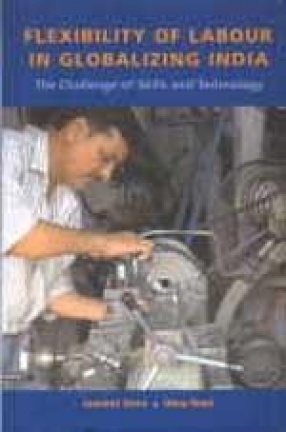
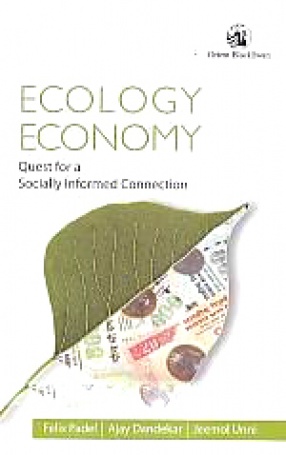
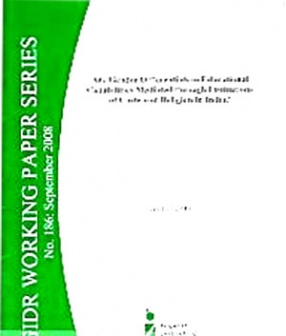
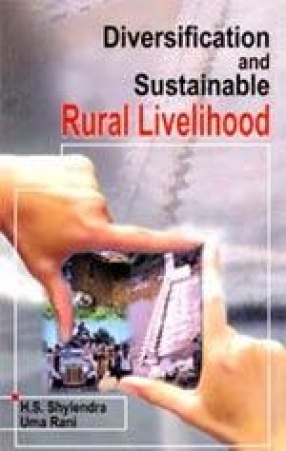

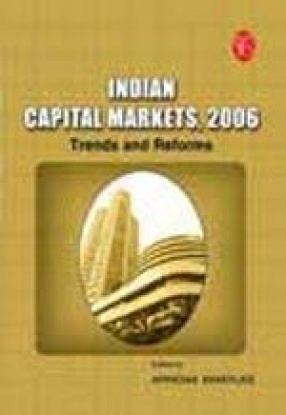
There are no reviews yet.